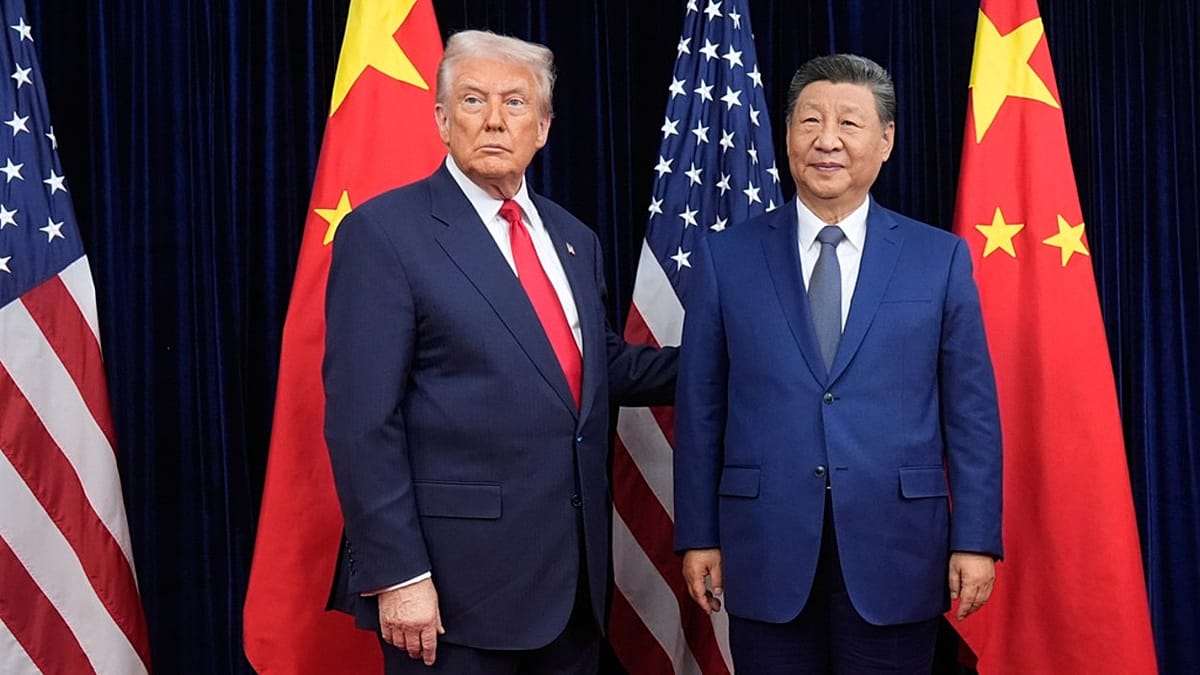Nina Schick on Why Generative AI Will Redefine Business, Politics, and What It Means to Be Human


Nina Schick is one of the leading voices at the intersection of AI, geopolitics, and digital trust. A globally recognised thought leader and generative AI speaker, she was among the first to highlight the profound societal impacts of synthetic media and artificial intelligence.
As the author of Deepfakes: The Coming Infocalypse and founder of Tamang Ventures, Nina has advised world leaders—including President Joe Biden—on the implications of emerging technologies. Her work spans government, business, and media, with regular appearances on the BBC, Bloomberg, and Sky News.
We spoke to Nina to discuss how generative AI is reshaping global power structures, why ethical governance is now a political imperative, and what businesses must do to stay ahead in the age of exponential innovation.
Q: As we move towards an increasingly digitised future, how do you see the Metaverse and immersive technologies reshaping the way businesses operate and engage with audiences?
Nina Schick: “I think the Metaverse is a concept of where the Internet may be heading and how digital experiences might be perceived in the future—where they become far more immersive.
“However, the really interesting thing with AI is that it’s the actual vehicle that will allow us to build these immersive digital experiences or environments that we refer to as the Metaverse.
“So, while the Metaverse is still an untested concept in terms of where the Internet might go, what is definitely true right now is that AI is going to be the vehicle that builds the content which goes into these immersive experiences.”
Q: With the rapid proliferation of AI and big data, what do you see as the most pressing ethical concerns society must confront—and how should they be addressed?
Nina Schick: “The question of ethics, AI, and big data is one that is going to become intensely political—and will remain a predominant issue for a long time.
“We’re talking about an utterly transformative technology, one that I believe will change the economy, the labour market, and even the framework of society.
“So, the question of how we apply this technology in a fair, safe, and ethical way will become one of the dominant political issues of our time.”
Q: Generative AI is already making headlines across industries. In your view, how will it fundamentally transform business models and productivity in the years ahead?
Nina Schick: “I think generative AI is absolutely going to transform the economy. This moment feels similar to 1993, when we were being told to prepare for the Internet.
“Thirty years ago, we didn’t fully understand—in our naivety—how much the Internet would change business forever. Now, generative AI is like that moment, but an even bigger deal.
“You can understand generative AI as almost a combustion engine for all human creative and intelligent activity. Every industry, every area of productivity, will be transformed by it—and those use cases are emerging right now.”
Q: Given your background in geopolitics and macro trends, how do you interpret the growing influence of data and AI on political systems and governance worldwide?
Nina Schick: “When you think about how profound AI is in its ability to impact and change the framework of society, it becomes clear that this AI revolution will be one of the most important political questions of our generation.
“We’ve already seen how the information revolution over the past 30 years—the Internet, smartphones, cloud computing—has become a major geopolitical force shaping our world.
“Now, add the AI revolution on top of that, along with the data that powers it, and once again, you have a seismic political issue.
“So when you ask about how it will impact politics—it will become politics.”
Q: For organisations navigating digital transformation, what mindset shifts and strategic frameworks do you believe are essential to truly leverage AI for long-term success?
Nina Schick: “For businesses looking to digitally transform their mindset, it’s crucial to understand the conceptual paradigm shift that’s happening now with artificial intelligence.
“Once you have the right conceptual framework in place, you can start to delve deeper—quickly.
“If you want to be competitive and maintain an advantage, now is the time to start looking at how generative AI can be applied in your business.
“There are many important considerations: your priority areas, long-term gains (not just short-term ones), and your overall AI strategy.
“If you create a dedicated generative AI working group to explore this, your business will be transformed—and ready to compete with others already leveraging AI to optimise their processes.”
Q: Lastly, as the first author to publish a book on generative AI, what sparked your early interest in this space, and how did you recognise its profound societal implications so early on?
Nina Schick: “The reason I became interested in AI isn’t because I’m a techie—I don’t have a technical background.
“My background has always been in macro trends that are shaping society, geopolitics, and the world. That’s what led me to research and write about AI.
“Ultimately, this isn’t just a story about technology—it’s a story about humanity.
“This is an exponential technology, built, amplified, and controlled by humans. It’s going to transform not only the way we work but also the way we live.
“It’s even going to change our very perception of what it means to be human.”
This interview with Nina Schick was conducted by Chris Tompkins.
The post Nina Schick on Why Generative AI Will Redefine Business, Politics, and What It Means to Be Human appeared first on European Business & Finance Magazine.














































